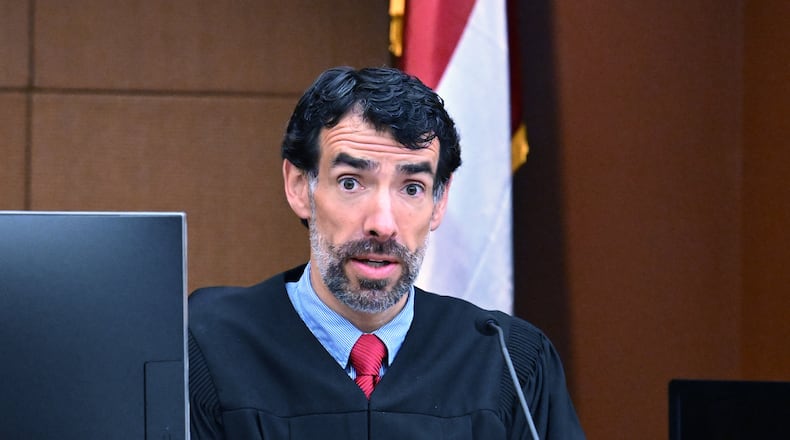Either state GOP chairman David Shafer or 10 other Republicans who falsely purported to be Georgia’s presidential electors must find new lawyers to represent them in the ongoing criminal investigation of what happened here after the 2020 presidential election, a judge ruled Wednesday.
Superior Court Judge Robert McBurney issued his decision in response to a motion filed by Fulton County prosecutors that said two Atlanta lawyers could not jointly represent 11 of the 16 “alternate” GOP electors because potential conflicts of interest make such representation “rife with serious ethical problems.”
But McBurney ruled that the lawyers must make a choice. They can either represent 10 of the GOP fake electors because they are similarly situated, or Shafer because he played a larger role in convening the slate.
Legal experts have said the DA’s office may be trying to split up the electors’ representation in order to offer deals to some but not to others.
Among the other 10 alternate GOP electors are newly elected state Sen. Shawn Still, GOP party treasurer Joseph Brannan, GOP assistant treasurer Vikki Consiglio, Atlanta lawyer Brad Carver and Coffee County Republican party chairwoman Cathy Latham.
McBurney is overseeing the Fulton County special purpose grand jury investigating former President Donald Trump and his allies for allegedly meddling with the 2020 election. Fulton prosecutors previously notified all 16 of the GOP electors that they are targets of the ongoing criminal investigation and could face criminal charges. The 16 individuals cast Electoral College votes for Donald Trump in a committee room at the state Capitol on the same day the official slate of 16 Democratic electors cast their votes for President Joe Biden on the Senate floor upstairs.
Atlanta attorneys Hollie Pierson and Kimberly Debrow, whose legal fees are paid by the state GOP, had argued that they could represent all 11 electors. They contended these clients are identically situated because each of them did nothing wrong. The lawyers also said they had spoken at length with each client about the perks and perils of joint representation.
Moreover, these 11 clients also agreed to waive potential conflicts of interest and had entered into a joint representation agreement that McBurney found to be “thorough, sufficient and knowingly and intelligently executed.”
But McBurney wrote, “The exception is David Shafer. ... He is substantially differently situated from the other 10 clients jointly represented by Pierson and Debrow.”
That is because of his role in establishing and convening the slate of GOP electors, his communications with “other key players in the District Attorney’s investigation” and his role in other post-election efforts to call into question the validity of the presidential vote count in Georgia, McBurney wrote.
“He is not just another alternate elector,” McBurney noted. “... His fate with the special purpose grand jury (and beyond) is not tethered to the other 10 electors in the same manner in which those 10 find themselves connected.” And this imbalance to potential exposure of criminal liability “makes it impractical and arguably unethical for Pierson and Debrow to represent all 11 together.”
In a statement, Pierson and Debrow said they disagreed that Shafer is differently situated from the other 10 electors. And they said he did not select the alternate electors or have any “legally material” communications with key players in the investigation.
The proper inquiry is whether the 11 electors are aligned in their defenses, the attorneys said. “Here, the undisputed evidence is that all 11 electors are so aligned, and none should be deprived of their counsel of choice.”
Keep Reading
The Latest
Featured




